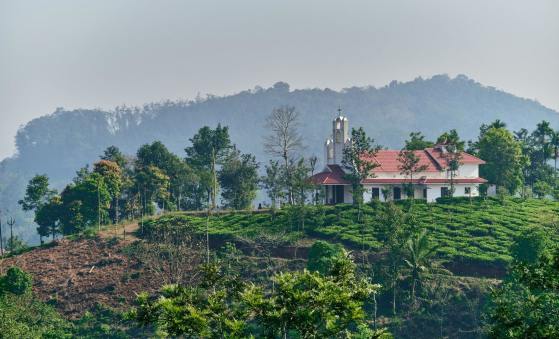A national consultation on the struggle of Palestinians for statehood found similarities between the ideologies of Hindutva and Zionism which they said were promoting division and suspicion of 'the other'.
"Hindutva and Zionism are two ideologies that are strikingly similar in content and orientation.
They have grown into forms of nationalism that are intolerant of pluralism and seek exclusivist identities for their followers," concluded the participants of the July 17-18 conference in New Delhi.
Held under the banner of Indian Ecumenical Solidarity Network for Palestine (ISEN), the event saw participants from the Church, Parliament, rights groups and civil society.
In his inaugural address, Mani Shankar Aiyer, Member of Parliament, presented delegates with multiple challenges that Indians must respond to.
An end to Israeli occupation based on UN resolutions and international law was called besides a nation-wide campaign for boycott, divestment and sanctions (BSD) against Israel.
It was noted that the Indian government and the corporate sector had significantly enhanced the quantum of trade between Israel and India disregarding the fact that Israel was in violation of international law and pays no heed to UN resolutions pertaining to ending the 45 year occupation of Palestine.
The Indian government is the second largest importer of military hardware from Israel. Profits from economic trade go to sustain and strengthen the military occupation, alleged the ISEN.
The two-day event saw a wide array of speakers including Rev Dr Jamal Khader, Palestinian Biblical scholar and Amjad Alqasis, an international human rights law expert. Also sharing their views were Prof Achin Vanaik, Shamsul Islam, Fr Maverick Fernandes and Dr Ram Puniyani.
Currently, the peace process in Palestine is at standstill. Activists are accusing Israel for occupation of Palestine by brutal measures, even as more land is being snatched away.
"Palestinians must face daily violation of human rights, freedom to pursue religious practices and restrictions of travel stemming from the installation check points," observed Rev Jamal Khader.
"Their essential rights to livelihoods are often deprived by closures, assaults on agriculture, indiscriminate house demolitions and arbitrary imprisonments without trial," he said.
Rev Khader urged for deeper ties between India and Palestine so new mechanisms can be explored and justice can be delivered to end the forceful occupation by Israel.
Meanwhile, the Indian Ecumenical Solidarity Network for Palestine, in addition to the BDS campaign, will also engage in building public awareness through meetings, seminars, media and youth initiatives.
ISEN, whose members include the NCCI, YMCA, YWCA, CBCI, SCMI and the Senate of Serampore College, will also lobby with the government to bring pressure through BRICS and other influential political groupings for hastening the peace process towards a comprehensive solution that takes into account UN resolutions and international law.




